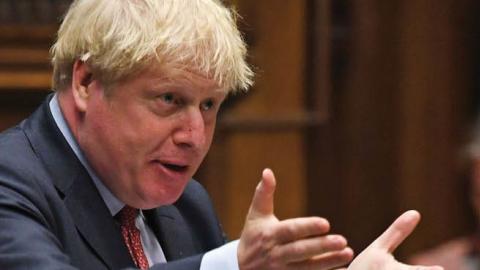Few world leaders face as many staggering tests as Boris Johnson. Withdrawing from a trading bloc that accounts for 43% of British exports was already going to be the biggest challenge in U.K. foreign and economic policy for a generation. Then came Covid, and as if that weren’t enough, China imposed harsh new security laws in the former British territory of Hong Kong. The U.K. has offered British residence to qualified Hong Kong residents, suspended its extradition agreement with the city, and—in an unrelated decision that also enraged Beijing—announced plans to exclude Huawei from the U.K. telecommunications market. As China threatens retaliation, Britain will have to reform its relationship with its many European trading partners and weather the pandemic-induced recession sweeping the world.
Meanwhile, London’s resurgence as a global financial center—the biggest success for the U.K. economy since World War II—is under threat. The mix of financial deregulation and globalization since the 1980s has brought extraordinary benefits to British finance and service firms. But now many countries are turning toward reregulation and deglobalization. Financial centers like London may have to reinvent themselves to thrive. Worse, U.K. markets and investors will likely face harsher treatment from EU authorities in a post-Brexit world.
Relations with Moscow, already icy following the 2018 poisoning of a Russian defector on British soil, are also worsening. Last month, the U.K. angered both Donald Trump and Vladimir Putin by announcing its opposition to Russia’s re-entry into the Group of Seven. This Tuesday, British investigators are expected to announce evidence of Kremlin meddling in the Brexit referendum, the referendum on Scottish independence, and last December’s general election.
Read the full article in the Wall Street Journal


















